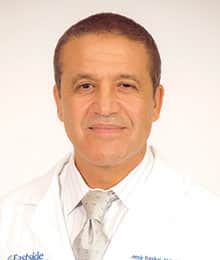
The manifestations of heart failure are either due to low blood flow or blood stasis in organs, secondary to deranged circulation. Because every organ is connected to the heart via blood vessels, it is not uncommon for the first signs of heart failure to show themselves in other organs such as lungs, liver, gastrointestinal tract and kidney. Therefore, at the end heart failure is the failure of the whole body.
How do you Diagnose Heart Failure?
The heart itself can be imaged easily and its electrical, mechanical functions can be assessed readily. Heart Failure, however, is a syndrome involving the whole body. At any given stage different organs can be affected to different degrees variably.
This complex interaction can create a diagnostic dilemma. Health care providers should have analytic capability beyond routine clinical observations and measurements to determine the contribution of HF to any organ malfunction at a given time and vice versa. Therefore, practically useful diagnosis of heart failure requires staging severity, determining cause, and attributes to the other organs.
Can Heart Failure be Misdiagnosed?
Misdiagnosis of Heart Failure happens more often than realized. It may also lead to multiple organ diseases, usually progressive. The result may be death, more commonly prolonged hospitalizations, and poor quality of life, the later ones significantly contributing to rising global health care cost.
Cumulative effects on individual and society are immense for the fact that HF is the most chronic, recurring, progressive, debilitating disorder. The cost increases exponentially as the disease advances.
Staging and Treatment Per Current Guidelines
Stage A – Carrying risk factors such as; hypertension, diabetes, dyslipidemia.
Stage B and C – Structural and clinical heart disease, yet potentially reversible.
Stage D – Refractory heart failure requiring advanced therapies such as assist devices, heart transplant or if appropriate hospice care.
Most recurrent hospitalizations are for late-stage C and D heart failure, a population representing the tip of the iceberg.
Depending on what stage it is, HF is treated by drugs, devices, and transplantation from a living donor. Although dietary discretion and hygienic lifestyle is essential; dietary supplements, exercise, herbal therapies, alternative medicine have a very limited role in HF management.
Application of any therapy(s) requires methodical, algorithmic and multidisciplinary approach. Many recent advances in treatments prolonging lives have posed challenges to healthcare providers to stay abreast, especially in advanced heart failure field. Within current institute-physician integration trends; efficacious, guidelines-based management of heart failure led by heart failure specialists will be crucial for better outcomes.
Dr. Demir Baykal specializes in the prevention and treatment of heart failure at Eastside Heart and Vascular. For more information, or to schedule an appointment, please call 770-736-6300 or visit EastsideHeart.com
1700 Tree Lane, Suite 190, Snellville, GA 30078

